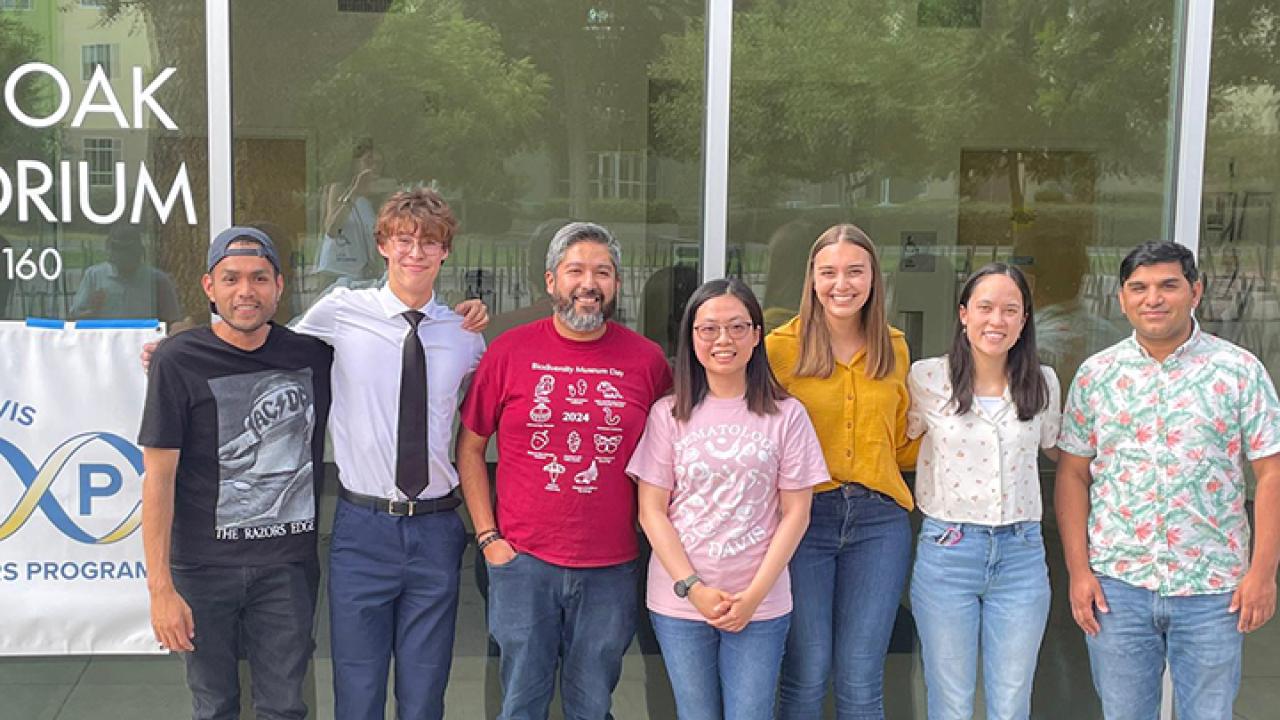
Young Scholars Learn About Nematology
Siddique Lab Mentors High School Seniors Enrolled in UC Davis Young Scholars Program
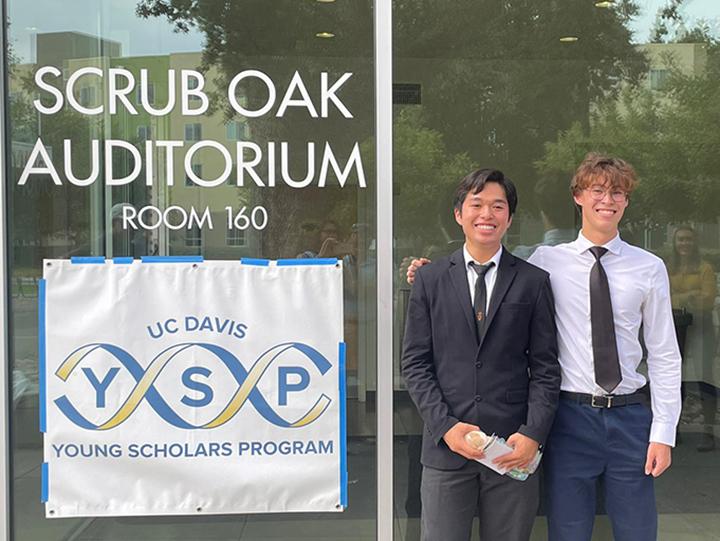
“Working in Dr Shahid Siddique’s lab was an absolutely amazing experience.”—Anderson Van Dang.
“The lab environment was very high energy and upbeat. I'm so glad I was a temporary part of such a strong and inclusive community.”—Mason Walline.
So commented two high school seniors participating in the UC Davis Young Scholars Program (YSP) who were mentored in the laboratory of nematologist Shahid Siddique, associate professor, Department of Entomology and Nematology.
YSP is a six-week summer residential program that introduces several dozen high-achieving high school students to original research within the fields of biological, agricultural, environmental, or the natural sciences.
“Anderson and Mason gained hands-on experience working with nematodes, contributing to ongoing research projects,” Siddique said. Both students, their parents and the program coordinator, highly praised the experience, “highlighting the positive impact it had on their understanding of science and research," he said.

YSP, launched nearly 60 years ago, offers students an opportunity to work one-on-one with a scientist on an individual project, then prepare a journal-quality paper describing the research and its conclusions. The young scholars then present their project at a research symposium and later to their home high school.
Each scholar receives five units of University Group Study Credit. All work is graded. Not only do they engage in university-level course work, attend lectures, and work on their projects, but they experience “the climate and culture of living and learning on a university campus,” according to YSP director Megan Bettis.
Anderson is a 17-year-old senior at California City High School, Kern County. Mason, now 18, is a senior at Harvard-Westlake School, Los Angeles.
Anderson worked with doctoral student Veronica Casey of the Siddique lab to investigate the effects of bacterial supernatant to plant parasitic nematodes. Walline worked with Ching-Jung Lin, a doctoral student in the Siddique lab and the lab of Professor Gitta Coaker, Department to Plant Pathology, to transiently express nematode proteins in the plant system.
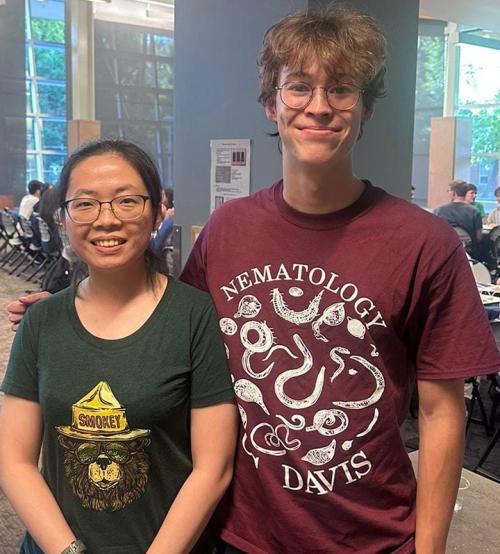
Also mentoring them were Siddique and lab members Bardo Castro Esparza, a postdoctoral fellow; and Alison Blundell, a doctoral candidate. "Bardo facilitated technical demonstrations, delivered lectures on advanced CRISPR techniques, and maintained regular communication with the program counselor," Lin noted. "Alison introduced Mason and Anderson to the nematology greenhouse and the controlled environmental facility, key components of our nematology research."
The entire Siddique lab provided constructive feedback when they were preparing their presentations.
Mason won second-place honors in the research competition, the "YSP Summer Slam" (Elevator Pitch or short-version), competing with some 35 other students. His topic: “Advancing Transient Nematode Peptide Expression: A Pathway to Co-Immunoprecipitation Optimization." Said Lin: "He delivered a compelling two-minute presentation with a single slide. His expertise and professionalism were evident, and he was awarded second-place among the six finalists."
Anderson's topic: "Effects of Bacteria Supernatant on Parasitic Nematodes."
Throughout the six-week program, “Mason exhibited a strong eagerness to acquire and learn new experimental techniques, specifically transient protein expression techniques,” Lin said. He also contributed to her research project.
Casey praised Anderson as “an amazing mentee this summer and he contributed a lot to my project. I was so impressed by how quickly he picked up lab skills, such as pipetting, PCR, and culturing bacteria. He worked independently, exemplified by him running experiments under Bardo’s guidance while I was away on a trip. Anderson was always willing to help people in lab and he had an infectious enthusiasm for learning. Both Anderson and Mason were incredible students, and we wish they could have stayed longer in the lab!”
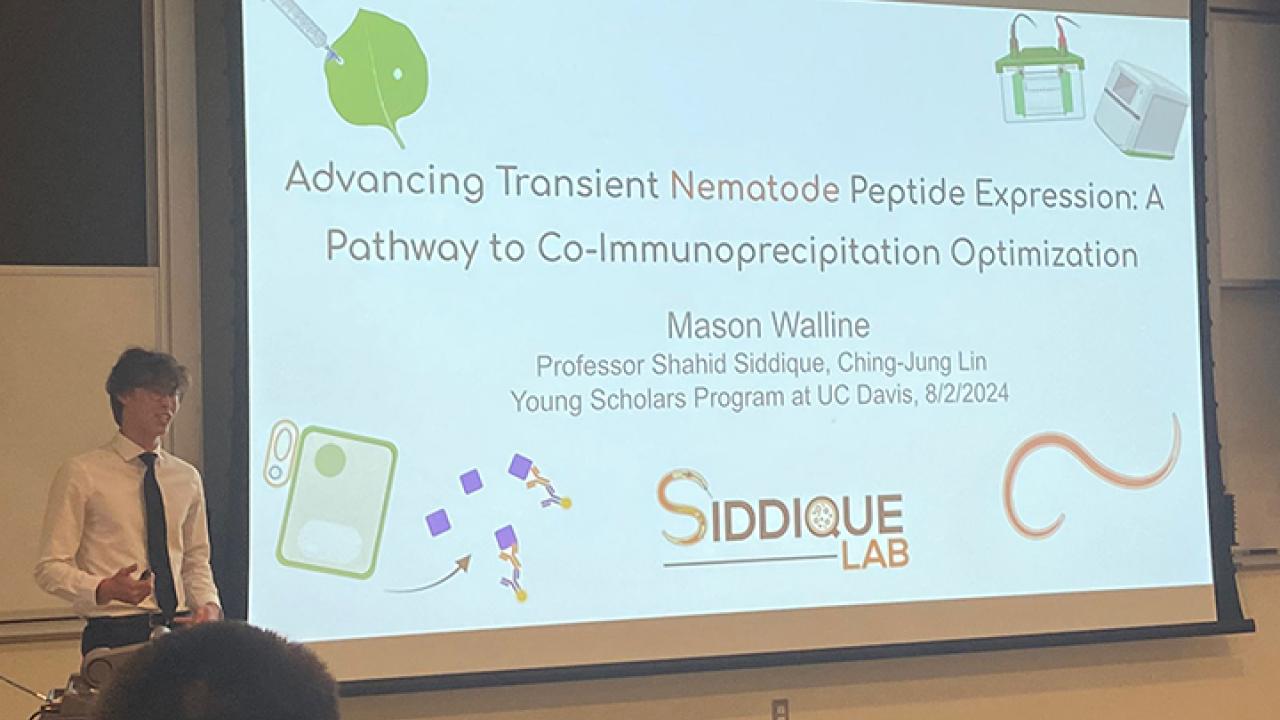
Both Anderson and Mason expressed their gratitude to the Siddique lab, their mentors and YSP.
“Working in Dr. Shahid Siddique’s lab was an absolutely amazing experience,” Anderson said. “There was always something to do every day and gave a positive real-world experience. The mentors in the lab were super inspirational and always made sure that our needs were more than met. Working under mentors for 6 weeks was super cool especially because they gave you space after showing you what to do so you have the opportunity to be independent and complete the assays you need to do. Overall, the experience was such an amazing and positive one.”
Recalling his placement in the lab, Anderson said: “I was super excited and ready to see what I would be facing. The first week was more of our lab gathering what we know-- background information, past experiences, and procedures we know how to complete-- and then the last five weeks were getting a specific project, working on lab assays, and completing the work we needed for the end of the Young Scholars Program--things like our presentation and paper.

Key things that Anderson learned? “How to streak out bacteria cultures/colonies, how to inoculate bacteria cultures in liquid LB broth, Polymerase chain reaction, Gel electrophoresis, plant agroinfiltration, extracting supernatant from bacteria cultures, inoculating Plant Parasitic Nematodes in supernatant, and how to use lab equipment."
As for future plans, “I would like to go into anesthesiology with a minor in business when I go to college," Anderson said. "Unfortunately, I am not leaning towards nematology and cannot see myself as a nematologist; however, the experience that I gained this summer taught me valuable transferable skills that I can apply toward any medical field in the near future.”
Mason said that when he applied to the Young Scholars Program, “I knew that I wanted to study something related to cellular biology but was unsure exactly what. I was interested in immunology and the interactions between a pathogen and its target. I was also curious about genetics. When nematology was presented to me, I was instantly intrigued. Studying both the methods nematodes use to infect and influence their hosts as well as the plant resistance genes important for agriculture was a nearly perfect combination of my interests.”
“The experience was very positive,” Mason said. “In the Siddique lab. there were lots of people around willing to help and always something to do. It never felt static. Some days we would go to lab meetings, other days we would do work in a greenhouse, etc. I received lots of patience and support when learning the procedures and processes for the first time. Through little elaborations on the what and the why, I was able to eventually become nicely familiar with the nematodes and plants we were working with. The lab environment was very high energy and upbeat. I'm so glad I was a temporary part of such a strong and inclusive community.”

Some of the key things he learned? “I gained experience in using and updating a lab notebook, using PPE, lab safety, pipetting, making/using bacteria culture, running PCR, running a Western Blot, and much more," Mason said. "I also learned how to give different styles of presentation: Longer research presentations that go into further depth as opposed to shorter presentations designed as an elevator talk to someone unfamiliar with a topic. I learned to write in the style of a scholarly journal." He also learned a lot about nematodes.
“In a less literal sense, I learned how to manage my time and pay attention to detail,” Mason related. “Polishing my lab journal as a means to record procedures, important information and experimental results was very important. So much of scientific progress goes on behind the scenes, and I'm glad I was able to have a glimpse of that. The tools I'll use to succeed in future labs were all acquired at the Siddique lab.
Mason is undecided on what career to pursue. “However, my experience in the Department of Entomology and Nematology widened my vision of what could be possible. I would encourage anyone interested in research to give nematology a try just because of how many different interests it can satisfy.”
"We greatly valued their time with us and extend our best wishes for their future endeavors," Lin commented.
Siddique defines plant-parasitic nematodes as "destructive pests causing losses of billions of dollars annually. Economic, health, and environmental considerations make natural host plant resistance a preferred strategy for nematode control, but there are limitations to this approach. In many cases, the resistance conferred by resistance genes is partial, and some of the nematodes are able to survive. Similarly, nematode resistance genes are often effective against only one or a few species, whereas plants are exposed to several pathogens in the field. Another concern is the emergence of pathotypes that can overcome resistance. In view of all these limitations, it is important to identify additional mechanisms and tools that can be used to develop novel and sustainable approaches to the management of nematodes."
The lab focuses on “elucidating the complex interactions between parasitic nematodes and their host plants, using these interactions as a model system to explore fundamental aspects of host-parasite biology," according to the Siddique website. "Parasitic nematodes are fascinating organisms that have developed sophisticated mechanisms to invade and manipulate their hosts, making them an ideal subject for research into host-parasite interactions.”
The 2025 YSP summer program is set June 22-Aug. 2, with applications opening Jan. 15. High school students can apply at https://ysp-app.ucdavis.edu/.
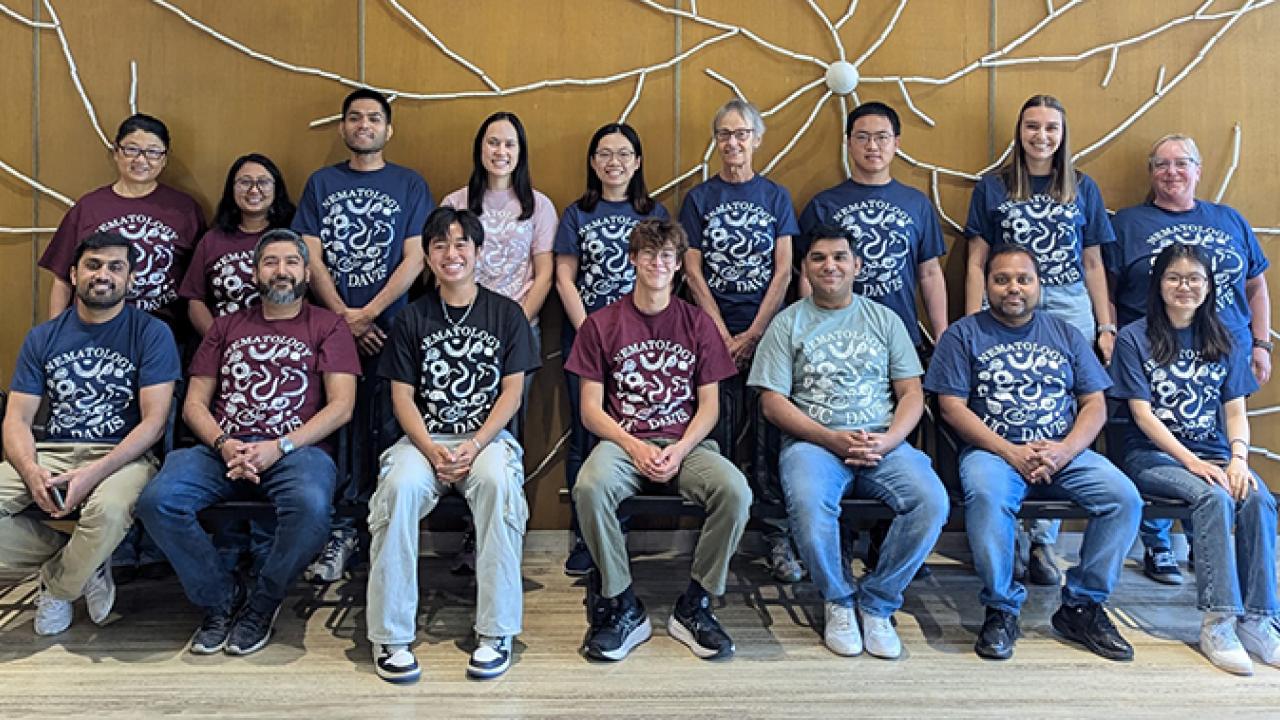
In back (from left) are Xuyun Yang, Pallavi Shakya (T-shirt designer), Romnick Latina, Veronica Casey, Ching-Jung Lin, Dr. Valerie Williamson emerita professor and nematologist from Plant Pathology; Dr. Dadong Dai, Alison Blundell, and Tanya Chilcote.
